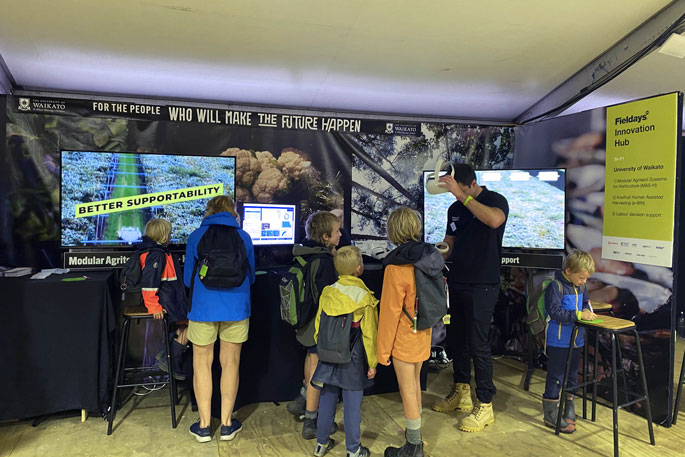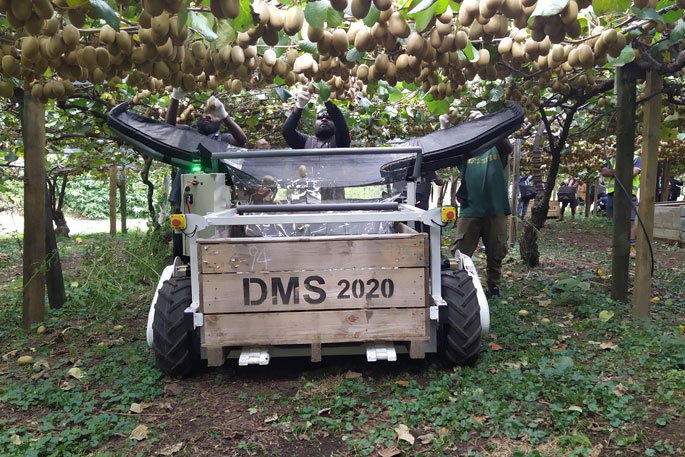The University of Waikato has developed an electronic fruit bin that assists in the harvesting of kiwifruit to help make picking lighter work.
University's School of Engineering lecturer Nick Pickering says the challenge is to use automation technology to invent something that will assist kiwifruit pickers on orchards and open up jobs to a wider group of people.
'The industry is suffering serious labour shortages especially during harvest, so we've come up with this solution that can enable more people to do the job of picking kiwifruit.”
Nick says the e-Bin aims to be technically feasible, financially viable and desirable for all stakeholders.
'The key factor is we needed something simple that can be commercialised quickly to help address the labour shortages we're seeing.”
He says picking kiwifruit can be physically demanding work, as people are required to carry a large bag that they fill as they pick. Once filled it can weigh about 25kg and then it needs to be emptied into a larger bin.
The e-Bin takes the hard work out of picking the fruit.
Instead of each individual having to carry around a bag, a group of four pickers walk alongside the e-Bin, which is on wheels.
As each kiwifruit is picked, it is dropped into a fruit catcher on the e-Bin. A net cushions and secures the fruit, before it rolls down and comes to rest in the main bin.
The e-Bin human assisted harvesting project has been a collaboration with Zespri, the project sponsor. It has also involved students and academics from the School of Engineering and industry experts.
Zespri orchard technology innovation lead Peter McHannigan says there's potential to solve many issues with assisted robotics but they must make commercial sense.
'Through this project we are looking at the total financial cost-benefit assessment.”
Garcia Contracting managing director Luciano Garcia says increasing the labour pool has to be the most important goal for this project.
'There are a lot of people who love to work outdoors but cannot handle the weight and the regular bending involved in the harvest.”
Nick says the e-Bin has been put to the test, first with 3D printed fruit and then out in the field, with researchers looking at a number of factors including productivity and fruit damage.
 The university's display at Fieldays this year.
The university's display at Fieldays this year.
The results are promising in terms of the e-Bin's ability to reduce fatigue and safely operate in an orchard environment.
'It's a basic concept and it links the desirability, financial feasibility and practicality in a very simple solution really – as all we have done is removed the weight.”
He says the e-Bin will be validated in trial work this coming season and likely commercialised soon after.
The e-Bin is one of the university's three innovations offering high-tech solutions to the horticultural industry entered in the Fieldays Innovation Awards Prototype category, and on show in the Fieldays Innovation Hub.
The University of Waikato's other innovations are Modular Agritech Systems for Horticulture (MAS-H) and Decision Support Tools.



0 comments
Leave a Comment
You must be logged in to make a comment.